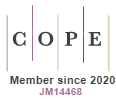Innovation in Hospitals and the Service-Dominant Logic
DOI:
https://doi.org/10.5585/rgss.v3i1.75Keywords:
hospitals, innovation in services, service-dominant logic, integrative approach to innovationAbstract
The development of the research on innovation in services has resulted in three approaches: technologist, service-based, and integrative. Each has a specific focus on the role of technology and the endogenous or exogenous character of innovations in services. The path chosen by state of the art research in the area has been to consolidate an integrative perspective. New research has used a service-dominant logic which allows an integrated view of economic activities based on the logic of value linked to services. This approach has raised the possibility of expanding the integrative approach, focusing on how innovations change the value proposition of a particular service through a new technology, by innovation in methods or in the service relationship. The aim of the present article is to develop this perspective using empirical research into hospital services. These activities, due to their complexity and strong interaction with different economic and social actors, bring to the fore many of the fundamental theoretical questions surrounding the debate on innovation in services, and provide a new perspective on hospital management. Based on semi-structured interviews, case studies on innovations in hospitals in Brazil and France were conducted from 2006 to 2010. The innovations studied involve new types of relationship with users, adoption of new technologies and innovations stemming from research and development. These case studies identified types, actors, and outcomes of innovation in order to develop an approach based on a broader integrative perspective, involving the analysis of characteristics and the service-dominant logic.Downloads
Downloads
How to Cite
Issue
Section
License
Copyright (c) 2019 Revista de Gestão em Sistemas de Saúde – RGSS

This work is licensed under a Creative Commons Attribution-NonCommercial-NoDerivatives 4.0 International License.
Autores mantém os direitos autorais e concedem à revista o direito de primeira publicação, com o trabalho simultaneamente licenciado sob a Creative Commons Atribuição - Não comercial - Compartilhar igual 4.0 Internacional que permite o compartilhamento do trabalho com reconhecimento da autoria e publicação inicial nesta revista.
Autores têm autorização para assumir contratos adicionais separadamente, para distribuição não-exclusiva da versão do trabalho publicada nesta revista (ex.: publicar em repositório institucional ou como capítulo de livro), com reconhecimento de autoria e publicação inicial nesta revista.
Autores têm permissão e são estimulados a publicar e distribuir seu trabalho online (ex.: em repositórios institucionais ou na sua página pessoal) a qualquer ponto antes ou durante o processo editorial, já que isso pode gerar alterações produtivas, bem como aumentar o impacto e a citação do trabalho publicado (Veja O Efeito do Acesso Livre) em http://opcit.eprints.org/oacitation-biblio.html


